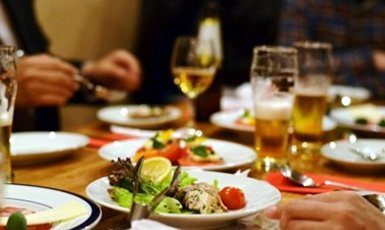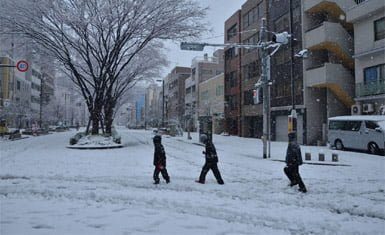While traveling in Japan for the first time, you may feel overwhelmed by the many new phrases and sentences that are used in the places you are going to visit.
To help you during the trip and make it more pleasant and instructive, it is recommended, before coming to Japan, learn some of the following phrases:
Contents
- 1 Regards
- 2 Useful phrase
- 3 Very important
- 4 Useful words
Regards
Ohayo Gozaimasu: Good morning.
Konnichiwa: Hello.
Konbanwa: Good evening (greeting).
Oyasuminasai: Good evening (farewell).
Hajimemashite: Nice to meet you.
Useful phrase
Watashi wa (name) to mooshimasu: My name is (name).
Onegaii shimasu: Please.
Arigato Gozaimasu: Thank you very much.
Doitashimashite: You’re welcome.
Tasukete kuremasen ka: Could you help me?
Ikura desu ka: How much does it cost?
(name of place) wa doko desu ka: Where is (name of place)?
(country name) kara mairimashita: Arrive from (country name).
Onaka ga suita: I’m hungry.
Node ga kawaita: I’m thirsty.
Otsukare sama desu: Thank you for your work. It is a greeting and farewell to a person who works with you.
Sumimasen: Excuse me. It’s a formal apology, and it’s also said as the first word to say before asking for a favor. Example: Sumimasen (excuse me), Otearai wa doko desu ka (where is the bathroom?).
Gomennasai: Sorry. Excuse me.
(name of person, object or place) ga suki desu: I like (name of person, object or place).
Kekko desu: No, thank you.
Give me desu: I can’t. I do not want. I do not like. Negative.
Yes: Hai.
No: Iie.
Aishiteru: I love you.
Nihongo ga wakarimasen: I don’t understand Japanese.
Eigo de onegaii shimasu: Please speak in English.
(name of drink) kudasai: (name of drink) please. Example: Omizu (water) kudasai (please).
Itadakimasu: Thank you for the food (it is said before eating).
Gochiso sama deshita: Thanks for the food. It was delicious. (It is said after eating).
Very important
Bi-ru: beer
Sake: Sake
Omizu: mineral aguna
Wain: wine
Useful words
Jinja (神社 / じ ん じ ゃ): Shinto Shrine.
Shinto (神道 / し ん と う): Shinto is the indigenous religion of Japan, it is literally translated as “Way of the gods”.
Otera (お 寺 / お て ら): Buddhist temple.
Densha (電車 / で ん し ゃ): Train (electric)
Shinkansen (新 幹線 / し ん か ん せ ん): Bullet Train (High Speed Train).
Kimono (着 物 / き も の): Traditional Japanese dress.
Yukata (浴衣 / ゆ か た): Summer kimono, simpler and sometimes more colorful than the general kimono.
Nippon / Nihon (日本 / に っ ぽ ん / に ほ ん): Japan. It can be pronounced both ways. Nippon is more official and strong, Nihon is a bit more casual and smooth.
Shogun (将軍): Military and political leader of the nation, until the beginning of the Meiji era (1868).
Edo (江 戸 / え ど): Former name of the city of Tokyo. Because the Tokugawa Shogunate ruled from Edo for 260 years, this period in history is called the “Edo Period.”
Hashi (箸 / は し): Long wooden chopsticks that taper to a pointed end used for eating in Japan.
Denwa (電話 / で ん わ): Phone.
Denwa Bango (電話 番号 / で ん わ ば ん ご う): Telephone number.
Kuukoo (空港 / く う こ う): Airport.
Tenno Heika (天皇 陛下 / て ん の う へ い か): His Majesty the Emperor of Japan.
Samurai (侍 / さ む ら い): Warriors of great honor who protected the towns or territories of a feudal lord, until the Meiji era (1868).
Geisha (芸 者 / げ い し ゃ): They are traditional performers of Japanese arts and music. They specialize in dancing, singing, and playing a variety of instruments including hand drums, shoulder drums, shamisen, and Japanese flutes.
Anime (ア ニ メ / あ に め): “Anime” comes from the word “Animation” and within Japan it is used to refer to any type of animation, while in the West it refers only to content produced in the land of the rising sun.
Omizu (お 水 / お み ず): Water.
Tabemono (食 べ 物 / た べ も の): Food.
Jishin (地震 / じ し ん): Earthquake.
Ai (愛 / あ い): Love.


